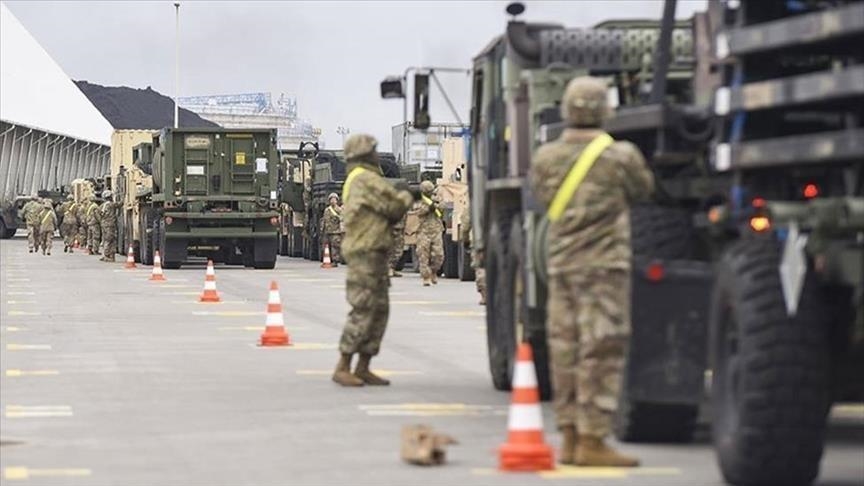Israel faces internal rift over war financing during Gaza, Iran assaults
Israel’s Defense Ministry seeks additional funding to pay for the war against Iran and the latest offensive on Gaza,’ reports Israeli media

ISTANBUL
Israel’s government is facing an internal dispute over funding for its ongoing military assaults in Gaza and Iran, as the Defense Ministry seeks billions of shekels to replenish munitions and support the extended deployment of reserve forces.
According to the Israeli daily Yedioth Ahronoth on Sunday, the Defense Ministry and the Israel Defense Forces are at odds with the Finance Ministry over the allocation of funds essential for replenishing munitions and equipment.
“The Defense Ministry is asking for an addition of 60 billion shekels to its budget to pay for the war against Iran and the latest offensive on Gaza, both military operations that were not included in the 2025 budget bill,” reported the daily.
Finance Ministry officials are resisting this request, citing concerns over increased costs associated with the mobilization of reserve troops and the overall defense budget.
Senior defense officials expressed frustration, saying the Finance Ministry has withheld funds previously approved by a joint defense commission, hampering the army’s ability to procure urgent equipment, including Arrow missile interceptors and armored vehicles for troops operating in Gaza.
“What can you do when the military needs the reserve force more than originally planned?” Israeli officials said, highlighting that the ground offensive in Gaza was not anticipated in the original budget and necessitated the extended use of reserve soldiers and additional resources from the Home Front Command.
The Finance Ministry maintains that the increased sales by Israel’s defense industries should offset the funding shortages. Ministry officials have also criticized the military for what they perceive as unnecessary expenditures, particularly concerning the deployment of reserve forces.
Defense officials are now urging Prime Minister Benjamin Netanyahu to intervene and resolve the financial impasse to ensure the military can effectively continue its operations.
A conflict between Israel and Iran erupted on June 13, when Israel launched airstrikes on Iranian military, nuclear and civilian sites, killing at least 606 people and injuring 5,332, according to Iran’s Health Ministry.
The US bombed Iran’s Fordo, Natanz and Isfahan nuclear facilities in an escalation of the conflict.
Tehran launched retaliatory missile and drone strikes on Israel, killing at least 29 people and wounding more than 3,400, according to figures released by the Hebrew University of Jerusalem.
The conflict came to a halt under a US-sponsored ceasefire that took effect on June 24.
Despite international calls for a ceasefire, the Israeli army has killed more than 56,000 Palestinians in a deadly onslaught in the Gaza Strip since October 2023.
Last November, the International Criminal Court issued arrest warrants for Israeli Prime Minister Benjamin Netanyahu and his former Defense Minister Yoav Gallant for war crimes and crimes against humanity in Gaza.
Israel also faces a genocide case at the International Court of Justice for its war on the enclave.
Anadolu Agency website contains only a portion of the news stories offered to subscribers in the AA News Broadcasting System (HAS), and in summarized form. Please contact us for subscription options.


